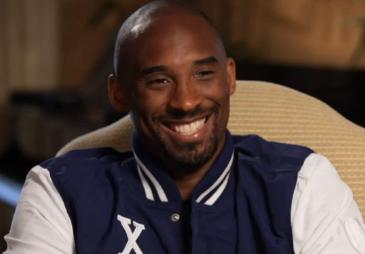 Moments after the Los Angeles Lakers were ejected from the 2012 playoffs by the Oklahoma City Thunder, Kobe Bryant talked calmly with reporters. No doubt the competitive anger within Bryant was hissing and steaming, but he was suppressing it because he was confident history would repeat itself.
Moments after the Los Angeles Lakers were ejected from the 2012 playoffs by the Oklahoma City Thunder, Kobe Bryant talked calmly with reporters. No doubt the competitive anger within Bryant was hissing and steaming, but he was suppressing it because he was confident history would repeat itself.
“I’m sure we’ll figure it out,” he said of the Lakers’ second consecutive ouster in the second round of the playoffs. “We always have and I’m sure we will again.”
Yes, the Lakers always figure it out.
What is amazing about their superiority is how willingly other teams help them. Everyone knows Lakers history, but it seems opponents are more than happy to add to Lakers tradition.
It’s happened consistently, and it even started a few years before Dr. Jerry Buss purchased the team in 1979. By that time, the Lakers had traded four very good but not great players for Kareem Abdul-Jabbar and already had been involved in a deal that would bring them Magic Johnson.
With Kareem and Magic, they won two titles in three years. After the second one in 1982, because of a deal under the Buss administration, they also had the No. 1 pick in the draft — and that’s how they got James Worthy.
How many teams win a title and get the No. 1 pick?
Throughout Buss’s tenure, players would get old and be replaced. Kareem and Magic would leave, but Bryant would be acquired by a trade and Shaquille O’Neal would sign as a free agent.
When Shaq wore out his welcome, he left, the Lakers stumbled, but then they were presented Pau Gasol on a platter.
And when they had what seemed to be an abundantly talented roster but still couldn’t make it to the conference finals, they did little more than snap their fingers and acquired the best center in the league in Dwight Howard.
The victim in the latest Lakers annihilation was 30-year-old first-time general manager Rob Hennigan. Admittedly, he was making a deal from a position of extraordinary weakness because of the unpredictable Howard, whose act is more suited for the “Real Housewives of Orange County” than professional basketball.
Howard’s indecisiveness and sophomoric behavior took all leverage away from Hennigan, but it still seems that he could have gotten a better deal. In return for the best center in the league, the Magic got players taken in their respective drafts at 15, 16, 25, 27, 30 and 37. They also got five draft picks – but all were from teams that made the playoffs.
Good luck with that.
(RELATED: Winners and losers in the Dwight Howard trade)
If Howard demonstrates the maturity of, say, Metta World Peace – which in some cases would be a step up for him – the Lakers will pass Oklahoma City in the West. And with the addition of Steve Nash, they will also be on par, if not better, than the Heat.
We learned this summer what we have known since Jerry Buss purchased the Lakers in 1979. Maybe they aren’t one step ahead of the rest of the league all of the time, but they are for most of the time. In the 32 years Buss has owned the team, the Lakers have had losing records only three times. During that stretch, in contrast, the Celtics have had losing records 11 times.
That record is simply staggering.
Again this offseason, the Lakers figured it out.
As Kobe said, they always have.
The Lakers’ fleecing of Howard ranks No. 1 this summer. Here are five more issues that dominated the off-season.
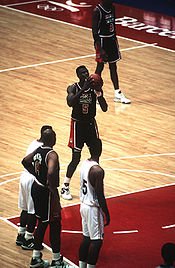 1. Kobe vs. Dream Team.
1. Kobe vs. Dream Team.
The Lakers figured it out, but at least in one area, Kobe Bryant did not. During training camp in Las Vegas to prepare for the Olympics, Bryant said the current team could defeat the celebrated 1992 team that not only included 11 members of the Hall of Fame, but also is in the Hall of Fame as a team. That produced a large number of disdainful responses.
Michael Jordan: “I absolutely laughed. [There is] no comparison. For him to compare those two teams is not one of the smarter things he ever could have done.”
Charles Barkley: “Other than Kobe, LeBron [James] and Kevin Durant, I don’t think anybody else on that team makes our team.”
Patrick Ewing: “Best out of 10, I’d say we’d have beaten them 10 out of 10.”
The public agreed. There were a number of Web sites that conducted polls and the 2012 team did not win even one. On the Huffington Post, the Dream Team got 83 percent of the vote with the 2012 team getting 17 percent.
What Bryant learned is that you don’t – even innocently and casually – diminish a legend. It’s like saying “my daddy can beat up your daddy.”
It never ends well.
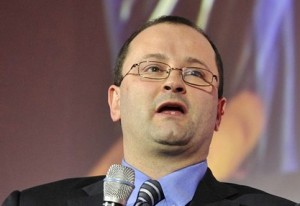
FIBA Secretary General Patrick Baumann
2. David Stern vs. FIBA.
In the months leading up to the Olympics and the 20-year anniversary of the Dream Team, a number of web sites and publications had major features or retrospectives of NBA participation in the Olympics. Amazingly, several of those still made the mistake of writing that the NBA forced its way into the Olympics because U.S. collegians lost to the Soviet Union in the 1988 Olympics in Seoul.
The suggestion was that Stern bullied his way into the Olympics, but that simply was not the case. Plus it was an insult to Boris Stankovic, the Serbian-born basketball visionary who was responsible for open play in international basketball.
While the basketball world was looking so forward to the Olympic tournament, Stern surprisingly diverted attention by suggesting that international rules be changed to make the Olympics a 23-and-under tournament.
Instead, the world championship of basketball would become the World Cup of Basketball with all NBA players. And suddenly – presumably by proclamation or decree – the World Cup would have instant credibility and prestige and be more important than the Olympics.
Stern had to be surprised by the reaction.
“It’s a stupid idea,” Kobe Bryant said.
And FIBA head Patrick Baumann, who replaced Stankovic, simply said “no.”
“It would be premature to make changes in the quality of basketball at the Olympics,” Baumann said.
(RELATED: FIBA tells Stern: No changes to Olympics)
There are many in the NBA who are unhappy that most of the money generated by NBA players in the Olympics does not go to the NBA. There is no doubt that a World Cup run by the NBA would produce more profits for the NBA.
But Stern underestimated the power and tradition of the Olympics. Players like James and Bryant spoke often of how important it was to them to play for the United States. They acquitted themselves impressively and sent a great message to the entire world about the quality of NBA players not only on the floor, but in the role of representing their countries. Players from other countries concurred — unanimously.
NBA executives and owners may want a change in Olympics basketball – but players and the rest of the world do not.
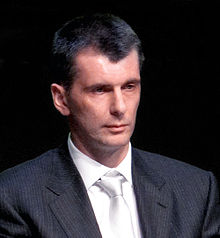 3. The Nets vs. Their Image.
3. The Nets vs. Their Image.
While it is true that Deron Williams got an additional year and $23 million to move to Brooklyn with the Nets instead of returning to his native Dallas and playing for the Mavericks, he said money was secondary.
Players always say that, but Williams pointed out that he not only pays city and state taxes in New York, but the cost of housing and education is also higher. And he has four kids. He still would have gotten more in Brooklyn, but the difference was more like $9 million over five years.
Williams, said, however, that he stayed with the Nets because under Mikhail Prokhorov, the Nets have been more aggressive than the Mavericks under Mark Cuban.
“I just felt like Brooklyn – the way they were going and willing to spend under this new CBA – was a better situation,” Williams said. “It was just more of a basketball decision.”
So let’s get this straight: The Nets are more aggressive than the Mavericks, who won the 2011 championship? Someone is willing to spend more money than Mark Cuban? And someone stays with the Nets – who are in the same conference with the Heat, Bulls and Celtics – for basketball reasons?
In the NBA, the times – they are a-changin.
(RELATED: WHERE do the Nets sit in our September offseason Power Rankings?)
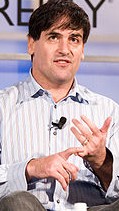 4. Dallas Mavericks vs. conventional wisdom.
4. Dallas Mavericks vs. conventional wisdom.
Is it possible for a Pot Luck Team to compete for any NBA title? Mark Cuban is going to find out.
The rowdy Dallas owner has tried to manage new salary cap rules in future years by not committing to long term deals unless the player is a premium player. That led him to not re-signing key players from the 2011 championship team in hopes the Mavericks might be able to sign Williams and Howard.
That didn’t happened and as a result, the Mavericks now have only Dirk Nowitzki and Shawn Marion left from their championship team.
But Cuban has been aggressive, acquiring Elton Brand, Chris Kaman, O.J. Mayo and Darren Collison.
The Mavericks will again have salary cap flexibility next season, and there is no doubt they have acquired very good players.
But how good will they be?
One thing is certain – they have an excellent coach in Rick Carlisle . . . and we’ll see exactly how good he is this year.
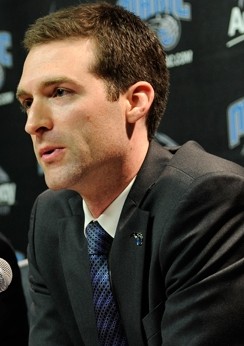
Orlando Magic GM Rob Hennigan
5. The GM factory.
During the summer, three executives with roots in San Antonio were hired as GMs – Danny Ferry in Atlanta, Dennis Lindsey in Utah and Rob Hennigan in Orlando. They join Dell Demps of the Hornets, Sam Presti of Oklahoma City and Kevin Pritchard of Indiana as general managers in the league who either began or spent portions of their careers with the Spurs.
The tandem of Gregg Popovich and R.C. Buford also have played roles in the careers of a number of head coaches – Mike Brown of the Lakers, Avery Johnson of the Nets, Monty Williams of the Hornets and Jacque Vaughn of the Magic. And Phoenix’s Alvin Gentry also began his coaching career as an assistant in San Antonio.
It seems clear that if you want to be a general manager or head coach, you should do everything possible to get an apprenticeship with the San Antonio Spurs.
Jan Hubbard has written about basketball since 1976 and worked in the NBA league office for eight years in between media stints. Follow him on Twitter at @whyhub. For Hubbard’s archive from SheridanHoops.com, click here.